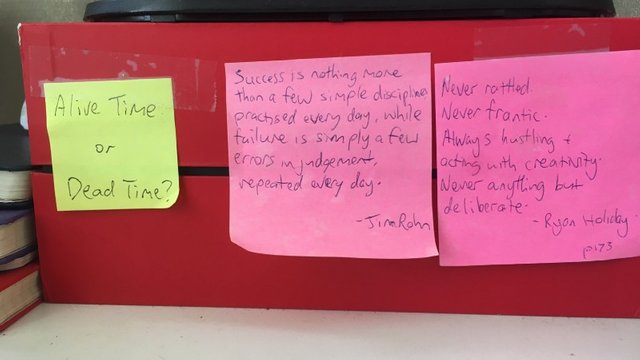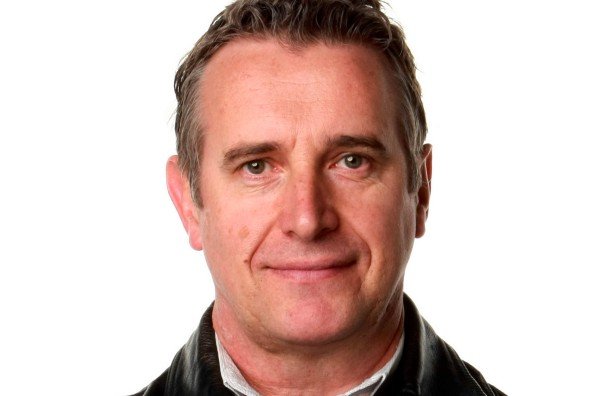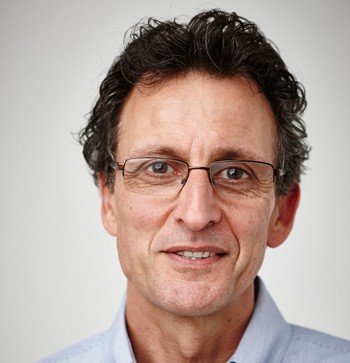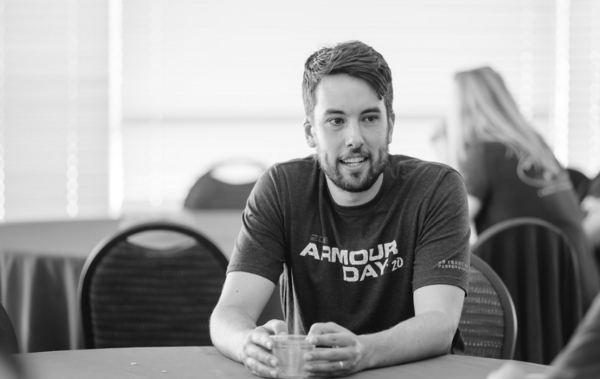Never Rattled, Never Frantic: Staying motivated during eight years in freelance journalism
Never Rattled, Never Frantic
Staying motivated during eight years in freelance journalism

Underneath my computer monitor are three handwritten post-it notes that have been stuck in place for several years. They each contain a few words that mean a lot to me.
From left to right, they read as follows:
1. Alive time or dead time?
2. Success is nothing more than a few simple disciplines practised every day, while failure is simply a few errors in judgement, repeated every day.
3. Never rattled. Never frantic. Always hustling and acting with creativity. Never anything but deliberate.
Since I began working as a freelance journalist in 2009, aged 21, I have worked from eight locations: two bedrooms, two home offices, three living rooms, and one co-working space.
At each of these locations, I took to writing or printing quotes that I found motivational or inspirational. Most of them I have either absorbed by osmosis or outright forgotten, but there’s one I found around 2011 that retains a special resonance. I printed it in a large font, and stuck it to my wall:
Nothing in this world can take the place of persistence. Talent will not: nothing is more common than unsuccessful men with talent. Genius will not; unrewarded genius is practically a cliché. Education will not: the world is full of educated fools. Persistence and determination alone are all-powerful.
(You can imagine the grin on my face when this quote featured prominently in the 2016 film The Founder, as seen below.)
That long quote was torn down and tossed during a move, but the message was internalised. If I had to narrow my success down to a single attribute, it’s persistence. I could have quit on plenty of occasions, after any one of a number of setbacks. But I didn’t.
In these motivational quotes, you may be sensing some themes.
I would be lying if I told you that the act of writing and affixing these quotes helped me on a daily, or even a weekly basis. I didn’t repeat them out loud, like affirmations. Most of the time, they were as easy to ignore as wallpaper.
But often enough in recent years, during down moments, or in times of stress or upheaval, I’d shift my gaze from the words—or the bright, blank page—on the computer monitor, and find that these few handwritten notes would help to centre my thoughts.
Let me tell you why.
1. “Alive Time or Dead Time?”
This one comes from American author Ryan Holiday, based on some advice he received from his mentor:
“Early on in my career I had a pivotal conversation with [author] Robert [Greene]. I was working full-time at a really good job but planning my next move, saving my money and thinking about what I might do next. I told him I wanted to write a book one day, but I wasn’t sure what, how or when or what about. He told me, Ryan, there are two types of time: Dead time—where we are just waiting, and Alive time—where we are learning and active and leveraging. And then he left it there with me to decide which I would choose.” [source]
This concept spoke to me because, as a freelancer, “dead time” can stretch interminably. This is the nature of working apart from other people: when you are out of sight, you are out of mind. The job, then, is to constantly remind other people of not only of your existence, but of your value.
In freelance journalism, I learned to create value by pitching story ideas to editors that were so good, or so original, they had no choice but to say yes.
To me, “alive time” was researching ideas, making calls and sending emails, and having conversations with editors as to how stories could proceed from assignment to publication.
Note that I did not mention the actual work of reporting and writing.
Very early in my career, my mentor told me that I would spend 90% of my energy on story pitches, and only 10% on the actual work of completing those assignments.
This seemed ridiculous at the time, frankly, but while I’m not 100% sure on the maths, the broader sentiment was correct: the hardest part of freelancing was always generating good ideas.
Reporting stories was always the most fun part, because it involved talking to interesting people, often in unusual environments, and I could let my curiosity run rampant because I was there to ask questions that the average reader would want to know, about whichever subject I happened to be reporting on.
Learning to drive passenger trains, for instance, or choosing to die at home surrounded by loved ones, or designing a video game character on the autism spectrum, or coping with the aftermath of a death by suicide, to name a few stories I wrote in 2017.
Writing is not always fun, but who wants to hear or read about how hard writing is? Shut up and do the work. Keep typing until it turns into writing, as David Carr would say.
“Dead time” was to be avoided whenever possible, then, as it meant being in a reactive state, waiting for the feedback or approval of others, rather than using my initiative to send positive, productive energy into the world.
This wasn’t confined to pitching stories to editors, of course: to me, “alive time” also included compiling my weekly email newsletter, or sending appreciative notes to fellow writers to congratulate them on a particularly great piece, or producing a podcast where I interviewed some of my favourite writers, or simply reading great writing for pure pleasure.
Each of these acts offered a powerful sense of satisfaction or achievement, and that first post-it note helped to remind me that if I was waiting in “dead time”, then it was time to change my environment, my mindset, or simply call it a day and take a break until tomorrow.
2. “Success is nothing more than a few simple disciplines practised every day, while failure is simply a few errors in judgement, repeated every day.”
It took me years to develop the discipline, routines and systems to function successfully as a freelancer.
This might be an unsexy sentence for any aspiring freelancer to read, but I’m afraid it’s true. There are no shortcuts. There is only trying, failing, and trying again.
When I decided to try sustaining myself as a full-time freelance journalist in 2009, I had just left a job at a web design company. I had spent a year working at an office, where I enjoyed constant contact and conversation with colleagues. I had grown used to working with people, and so the decision to pursue freelancing presented the challenge of learning to work in isolation.
At the time, I was living with two friends, who were either studying at university or newly employed. During that first year, in particular, I failed plenty of times by prioritising a Sony PlayStation controller over typing at a keyboard. At that time, very few editors knew—or cared—about me and my writing, and so there was plenty of “dead time” where playing FIFA was far more appealing than waiting for responses to my emails. In time, I realised that I wanted success in this career more than kicking virtual balls into virtual nets.
I first read this quote in a 2015 email newsletter sent by author Noel Whittaker, who attributed it to American businessman Jim Rohn. I liked it a lot.
To me, the concept of “a few simple disciplines” concerned not only a devotion to writing itself, but to building systems and routines that would allow me to be mostly productive, most days.
This included banal but essential ideas such as getting enough sleep; starting and ending the workday at roughly the same time each day; exercising regularly; eating well, and making sure that I gave myself a break on weekends, rather than working all day, every day.
Here, too, I made errors in judgement. But I learned from my mistakes.
For a while, my passion for work became all-consuming to a point where I was neglecting my most important relationship. Thankfully, I was able to realise the error of my ways before causing irreparable damage. (Shorter version: we’re now married.)
One extreme example: I recall spending January 26, 2010 working feverishly on my first feature assignment for The Weekend Australian Review, having spent the previous few days speaking to some of the key figures in country music—a subject about which I knew practically nothing. While my friends and girlfriend were enjoying themselves at an Australia Day pool party somewhere, I was at the desk, on deadline.
I sent a first draft of that story at 3:36 AM on January 27. In hindsight, this probably makes me look unhinged, and it’s not something I’d recommend. But those intense few days of work represent me wanting something so badly that I pushed through barriers that would have ordinarily stopped me. This was my first assignment for a national newspaper, and I didn’t want to screw it up.
As I later wrote in a rather embarrassingly breathless summary of that time:
“It was the most exhilarating journalistic experience of my life. Five days focussed on researching and synthesising the story of a centuries-old art form into around 2,000 words. What a challenge. I’m so glad I accepted it.”
There is an eerie coda to this story. That country music assignment was handed to me only because The Australian’s national music writer, Iain Shedden, was on leave at the time.
And in January 2018, I will begin working as The Australian’s national music writer only because Iain Shedden died, suddenly and unexpectedly, in October 2017. (He is pictured below.)

I will only feel confident and competent in following in the footsteps of such a great man—and great writer—because of what took place in those eight years.
Namely: I learned to practise a few simple disciplines every day, while doing my best to avoid making—and repeating—a few simple errors in judgement every day.
3. “Never rattled. Never frantic. Always hustling and acting with creativity. Never anything but deliberate.”
This last quote was written by American author Ryan Holiday, who I mentioned above. It appears on page 173 of his 2014 book The Obstacle Is the Way: The Timeless Art of Turning Trials into Triumph, which I highly recommend.
Ryan Holiday is one of the most influential people in my life. (I first wrote this sentence in 2011, and it’s still true.) Ryan is a year older than me. I have followed his writing for more than a decade, and we’ve met a couple of times in the United States and Australia. This year, he published his sixth book. His output is prodigious, but the quality is consistently high. When he writes, it’s inevitably worth reading.
This quote of Ryan’s spoke to me when I first read it in 2014, and I’ve since tried to use it as a model for how I conduct myself not only as a journalist, but as a person. There is a lot to admire in the sentiment, as it’s aspirational, too: who wants to be around someone who is regularly rattled, or frequently frantic? Wouldn’t you prefer a person who is calm, diligent, and deliberate in their thoughts and actions?
To me, “hustling” has no negative connotations. Throughout my career, I have taken hustling to be an essential component of being a freelancer, as the role demands self-reliance and self-direction. It demands a willingness to sell yourself; to make new connections, and to create opportunities where none previously existed.
Creativity is central to this mindset. Beyond the act of writing, I have tried to bring creativity to broadening my network of allies: not just editors who might pay me to write for them, but just as importantly, fellow writers whose work I admire.
While visiting Sydney in 2011, for instance, I asked to meet with a journalist and author named Richard Guilliatt, who was speaking at an investigative journalism conference (and who is pictured below).

When we met, I asked Richard—then and now a staff writer at The Weekend Australian Magazine—if he would consider becoming my mentor. I saw it as an informal role that would involve him reading my first drafts before my editors, and giving brutally honest feedback on what could be improved.
Richard said yes, and in the years that followed, his incisive advice super-charged my feature writing—and my confidence—to a point where I no longer felt the need to show him my drafts. (He and I also spoke extensively about his career as a feature writer on my podcast, Penmanship, earlier this year.)
This is just one example of a deliberate action on my part: by combining forces with a far more talented and experienced writer than myself, I was able to succeed far quicker than I would have on my own.

Three years before meeting Richard, I found my first mentor in Nick Crocker (pictured above). Or more accurately, he found me, and took me under his proverbial wing just as I was taking my first tentative steps as a freelancer.
In the nine or so years we’ve known each other, I have written a weekly update to Nick just before I clock off on Friday afternoon. In these emails, I summarise the highs and lows of the workweek: what worked and what didn’t; what was great, and what I could do better. Where necessary, he gave suggestions, or nudged me down paths I hadn’t considered, or was too afraid to take.
It is no exaggeration to say that, through this unique relationship, Nick knows me better than just about anyone on the planet. It is thanks to his consistent guidance and encouragement that I have achieved anything at all in journalism.
I wrote earlier that “persistence” is the key attribute I’d use to summarise my freelance career, while those three motivational post-it notes have acted as anchors in occasionally stormy seas.
Although eight years of freelancing was sometimes stressful—in the sense that I could rarely anticipate my monthly, quarterly or annual income—it was also enormously fun and enlivening. By and large, I loved it dearly, and I will miss it.
I became interested in journalism because I wanted to tell stories. I wanted to learn about strange and exciting things, and share that knowledge with other people. In that sense, this next role is a perfect fit, and I’m very much looking forward to starting it.
As I move into the next stage of my career, I haven’t yet decided whether I’ll keep those post-it notes under my computer monitor, or tear them off and start afresh. Those few words helped to get me here; perhaps I’d be a fool to abandon them now.
Andrew McMillen (@andrewmcmillen) is a journalist and author based in Brisbane, Australia. From January 2018, he will be working as national music writer at The Australian. To read more of his writing, visit andrewmcmillen.com
Great story
@rymlen Excatly
@andrewmcmillen very good material
Quite inspiring. Thanks for sharing
This is such a wonderful story. I must say I resonate with your second quote a lot having been put in a position where I've had to be conscious of the few simple disciplines I had to practice, nowadays I'm able to keep tabs on my activities and I'm getting better result. The rest of the post was also great. I love the quotes hanging under your computer monitor, matter of fact, I'm saving that picture and I'm gonna print them so I can hang them by my bedside.
"Nothing in this world can take the place of persistence. Talent will not: nothing is more common than unsuccessful men with talent. Genius will not; unrewarded genius is practically a cliché. Education will not: the world is full of educated fools. Persistence and determination alone are all-powerful." Definitely writing this one down on a post it note. Great read very inspiration
Success is not a easy tast at all. Successful human being always try hard in working. And yes I like your motivation.Great post
I believe hard work will pay off long time
A great suggestion you have shared for all the stemians, to make me more passionate and motivated when I read your post, thanks to @andrewmcmillen, has motivated me to have a mentor in life, once again thank me for your contribution give it away.
hi visit my blog. thanks
Please don't SPAM... take a look in this before hurting your reputation.
https://steemit.com/steemit/@miti/newcomers-minnows-and-spammers-this-post-will-save-your-reputation
wow amazing post.I like motivations.your freelancing motivation is just awesome.thank you for share with us.your post content is so nice continue this.
Freelancing is a hard work, just followed you @noyon696
hi visit my blog. thanks
you are welcome dear.
@andrewmcmillen I am thankful for this post as a newbie sometimes I get disappointed to. The point of quitting when my post don't get noticed but thanks to. You I will persist
As a newbie who is struggling to be noticed in this platform this post is very encouraging @andrewmcmillen
Incredibly, I am very impressed with the three important motto of your life, and I will reflect back on the extent of the mistakes I have made during my life while imagining how diligently your struggle to exist in writing.
Your post is very memorable and an obsession for me, thank you.
I will try to be more relevant in the face of life.
hi visit my blog. thanks